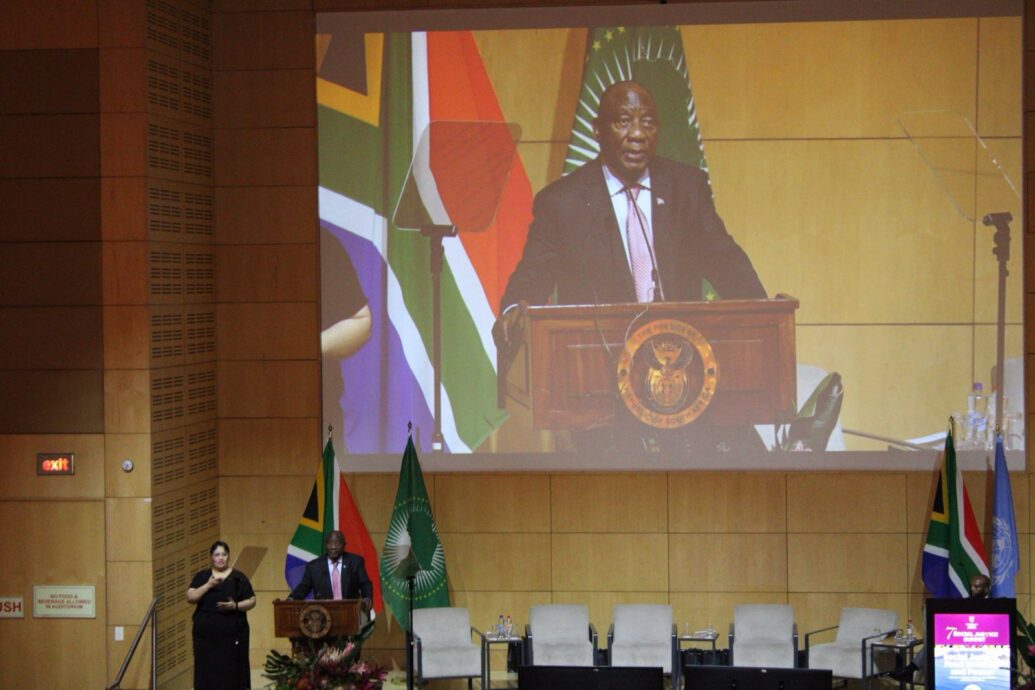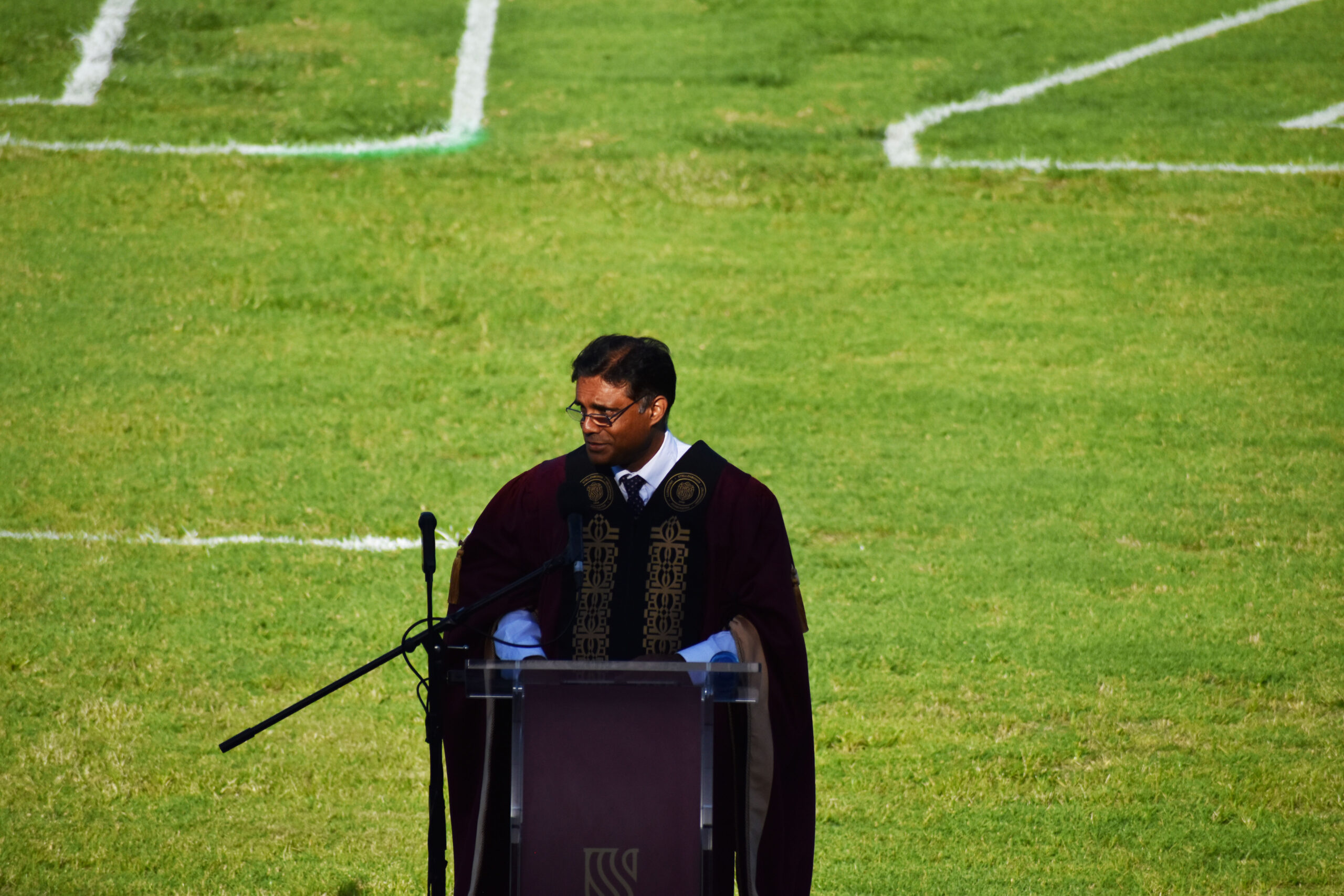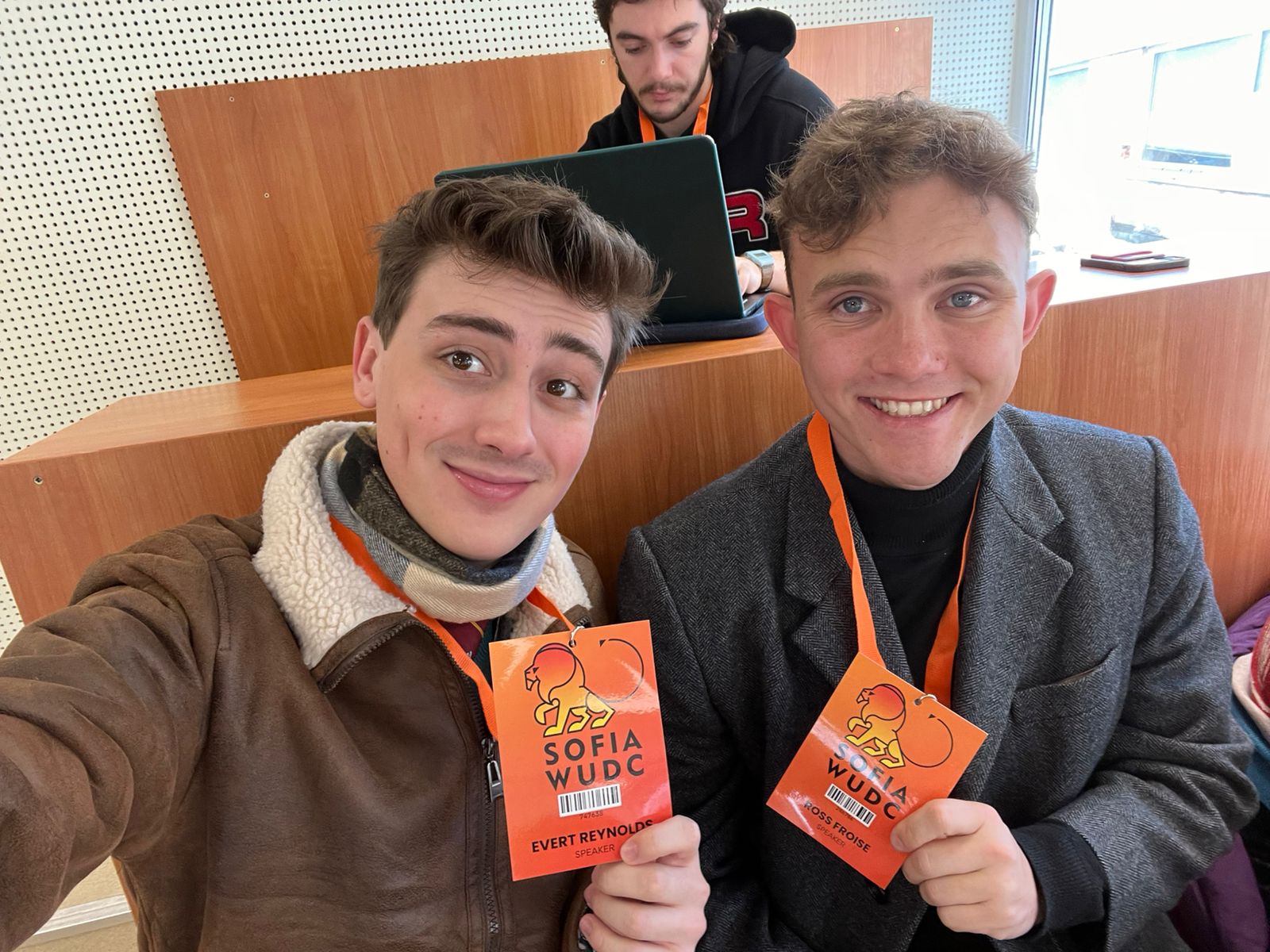By Leah Falcon

The 7th annual Social Justice Summit took place on 17 October and was organised by Stellenbosch University’s (SU) Centre for Social Justice (CSJ) at the Cape Town International Convention Centre.
This event took place following the Social Justice Convention held over the previous two days and served as the climax of the event. The summit saw luminary panelists take to the stage, thought-provoking discussions and an address by President Cyril Ramaphosa.
The President was greeted by a Grade 7 student, who was invited to read the Preamble to the Constitution in Xhosa, saying, “Hello Cupcake.” This moment drew peals of laughter from the audience and set off the summit with a light-hearted start before the conversations delved into its main topics: social justice, food security and peace.
Professor Thuli Madonsela, the Director of the CSJ, gave the welcoming address, anchoring the summit in its intention. She introduced the themes of the conference, saying that “hunger is not an accident of human issue” and peace is not just the antithesis of war, both are underpinned by structural and systemic issues including gender-based violence, corruption, climate change and crime. Nelson Muffah, the Resident Coordinator of the United Nations (UN) in South Africa, linked these issues, saying, “Development without justice is fragile and peace without food security is futile.” These statements highlight the deeper and more systemic causes of food insecurity and the erosion of human rights.
Professor Deresh Ramjugernath, Rector and Vice-Chancellor of SU, gave the opening address and emphasised SU’s role in “enhancing the trajectory of society”. He outlined SU’s priority of ending student hunger, and coordinating and integrating social justice efforts at all levels, stating that “social justice is a team sport”. He emphasised the importance of involving students in social justice movements as they “bring urgency and moral clarity”.
Ramaphosa began by acknowledging that we are five years away from 2030, the deadline for UN’s Sustainable Development Goals (SDG) as well as the National Development Plan (NDP) aiming to eliminate poverty and reduce inequality and yet “progress towards achieving both the NDP and the SDG’s is way off course”. Not only are these goals not being met, but cases of malnutrition in South Africa have increased by 26% over the past five years.
The President recognised that “freedom from hunger is both a moral and developmental imperative”, particularly in South Africa which is one of only 29 countries in the world whose constitutions explicitly enshrine the right to food. He spoke about the multifaceted approach that South Africa has taken to combat rampant food insecurity involving different policies and plans. The National School Nutrition Programme was particularly mentioned as one of the most far-reaching of these, currently feeding 9,7 million learners every school day, spotlighting this as “more than just a support system; it is a strategic effort to promote a healthier, more educated future”. The President recognised the global solidarity in efforts towards food security, including the focus on this since the Brazilian G20 Presidency. He went further to say that addressing this deep issue “demands that we act collectively” calling on businesses, government and civil society to work together. The President concluded his keynote address with the statement that food “is a universal right […] a human right that should never be diluted. Food is human life.”
Subsequent speakers and panels focused on the right to food security and peace and the necessity of multifaceted collaboration to address these issues.
The right to food was explored with multiple speakers emphasising, in the words of Dr Nicky Newton King, Chair of SU Council, that “hunger is not just a daily ache” but rather something fundamental. Others characterised food as an expression of culture, community and identity as well as an element in power dynamics. The right to food, according to the South African Constitution, is not subject to gradual realisation, but is immediate.
Other speakers addressed how initiatives to address food insecurity needed to engage communities meaningfully in order for change to be substantive and lasting, permeating the culture of our society.
Business leaders present, including from Spur, Woolworths, Klein Goederust and FoodForward SA, illustrated how they “decided not to shout at the government” but “put up [their] hands and say ‘we will do it’”, as Moshe Apleni, an Executive from Spur, said. Zinzi Mgolodela, head of transformation at Woolworths, highlighted this “ecosystem” way of thinking which acknowledges the interdependence of business and the society in which they operate, saying, “We can’t live in isolation from the community.”
The summit provided a vital space for engagement between different sectors, groups, provinces and branches of government. Prof. Ramjugernath identified it as “an accountability moment” and a moment for those present to commit to collaboration and change. The statement, “I am here and I want to know,” spoken by a member of the audience, illustrates the active role many attending played in asking critical questions, calling for accountability from speakers and sharing their experiences and expertise.
The thread that ran through the summit was the need for collaboration to address the deeply systemic and complex issue of food insecurity. The sense of solidarity and purpose that was evoked throughout the day was summed up by Alan Winde, Premier of the Western Cape: “We’ve got to get this done! […] Let’s do this together!”



